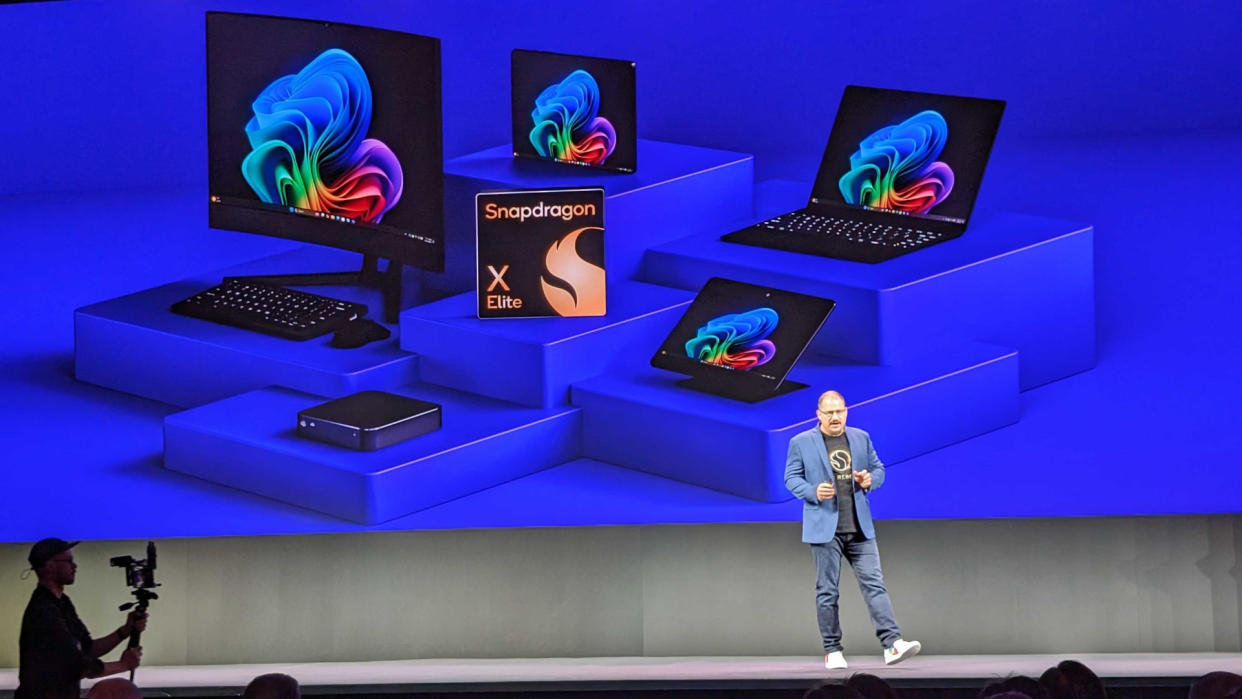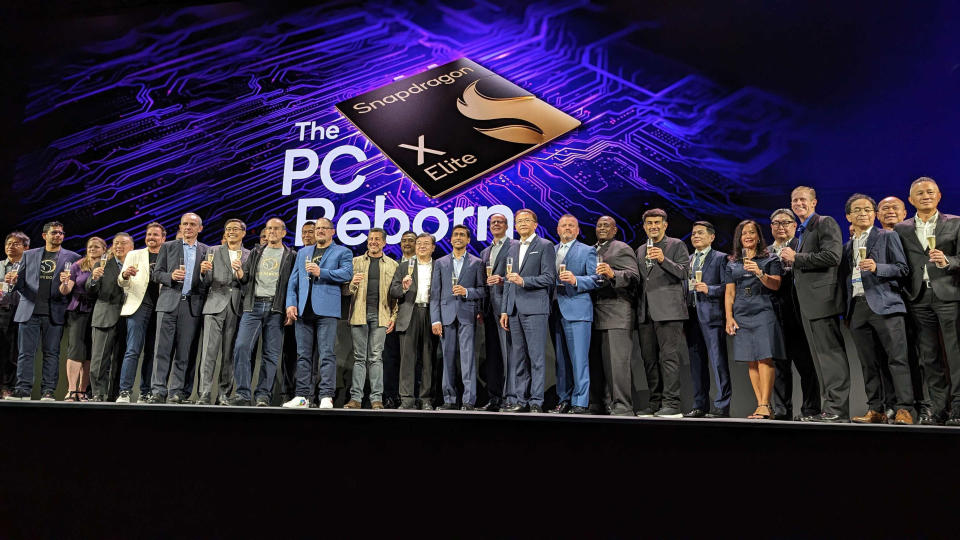Qualcomm says the Snapdragon X Elite is going beyond laptops, which makes total sense

What you need to know
At its Computex keynote, Qualcomm has stated that it will be going beyond laptops with the new Snapdragon X Elite.
Without mentioning any specific devices, the slide at the event clearly shows both a mini PC and an AiO.
Qualcomm already announced its own dev kit consisting of a mini PC powered by Snapdragon X Elite, but this seems like the logical next step.
The tech world never slows down and following the big Surface and Copilot+ PC launch recently, Computex is now going down in Taipei. Qualcomm is out there, too, and naturally, has been talking up its new platform.
Obviously, we're all eagerly anticipating getting our hands on the first laptops with the new chips inside, but there has been one glaring gap as yet unfilled. Everything powered by Snapdragon X Plus or X Elite has, so far, been a laptop. But at its Computex event, Qualcomm has confirmed that won't be the way forever.
Without getting into specifics on what's coming and which of the hardware manufacturers will be making it, Qualcomm's slide clearly shows both an all-in-one and a mini PC. These are just more likely just generic shapes rather than teases of actual hardware, but it's a telling sign.
And it's unlikely that Qualcomm would be talking about its own dev kit in this context.
I've already written how the hardware I want to see most powered by Qualcomm is a Windows-alike of the Apple Mac Mini, and it looks like, eventually, I'll be satisfied. Laptops are an important, and obvious, target for new chips like these. But there are still a lot of us out there that use a desktop machine for our day-to-day.

Apple is the obvious comparison, keeping its own desktop lineup trucking with its ARM-based M-series chips. Over there those folks have the Mac Mini, the iMac, the Mac Studio, and the Mac Pro, all now powered by Apple Silicon.
It would have been foolish for Windows OEMs not to consider the desktop in some way, even if we're going to have to wait a while longer to see what they come up with. This is very much just the beginning of Windows on ARM, even though it's not really the beginning. But it has been reborn, and this time it's going to matter.
